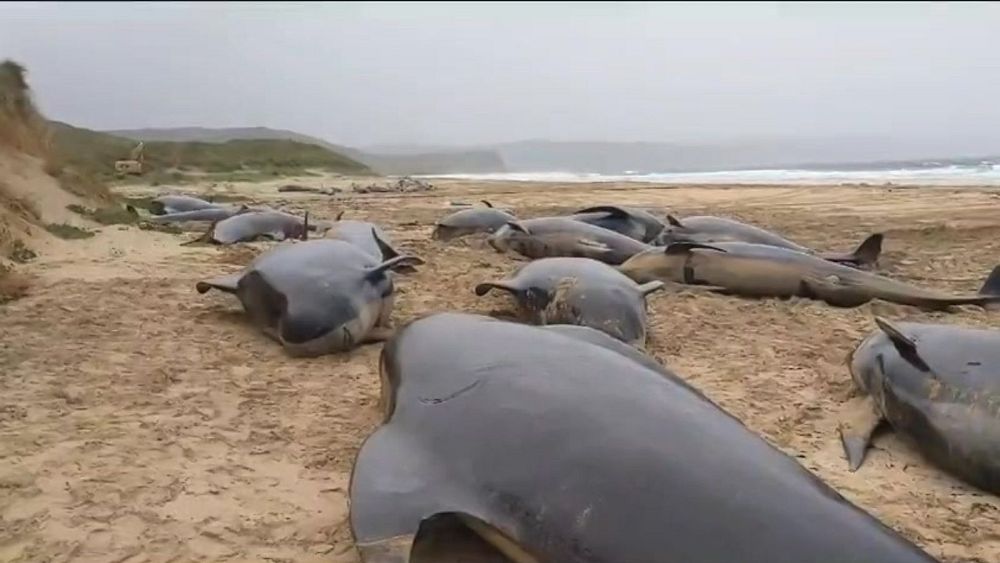
Investigators face race against time to find out what happened in what’s believed to be the UK’s worst fatal mass stranding.
Only 15 of the whales were alive after they washed on to Traigh Mhor beach at North Tolsta on the Isle of Lewis on Sunday morning.
Attempts were made to save some of the survivors, but one became stranded again. Ultimately, the remaining animals were euthanised on welfare grounds.
The BBC reported that it was the highest number of deaths following a mass stranding of animals in the UK.
Why were the whales stranded on a Scottish beach?
It is feared that the whales may have become stranded as one of them was giving birth. As the species has a strong social bond, when one gets into difficulty the rest tend to follow.
This is yet to be confirmed, though it was the cause of another stranding in Skye in 2015.
The Scottish Marine Animal Stranding Scheme (SMASS) faces a race against time to carry out post-mortems on a select number of animals and try to establish what has happened, as it would be impossible to assess them all.
“It’s going to be a monumental task. There are more animals sadly which are awaiting necropsy now than all of the mass strandings put together for the last decade,” SMASS Director Dr Andrew Brownlow told the BBC.
‘A race against time’
“What we will try and do is triage these animals – we will select those animals that we think best represent the rest of the pod and make sure that we take samples and as much data that we can. Then it’s simply a race against time, energy and weather. We will do the most that we possibly can to find out what’s been going on here.”
He made it clear that, while they will investigate potential human impact such as underwater noise or interaction with fishing gear, “Pilot whale strandings have happened for centuries – it’s not necessarily the case that it’s because of human impact.”
And he added that, while the task is grim, it is important to carry it out.
“From the process of examining these animals we can learn a lot about the threats and pressures that affect not just the animals in our waters but globally. So I think there is some value in doing this,” he added.